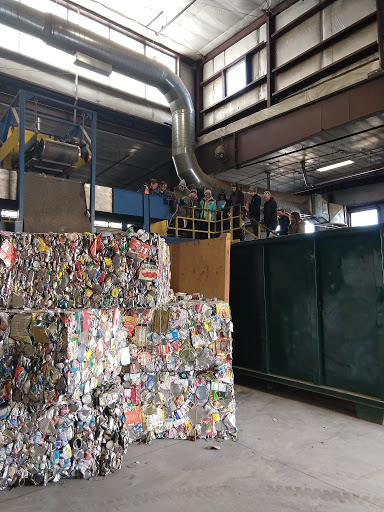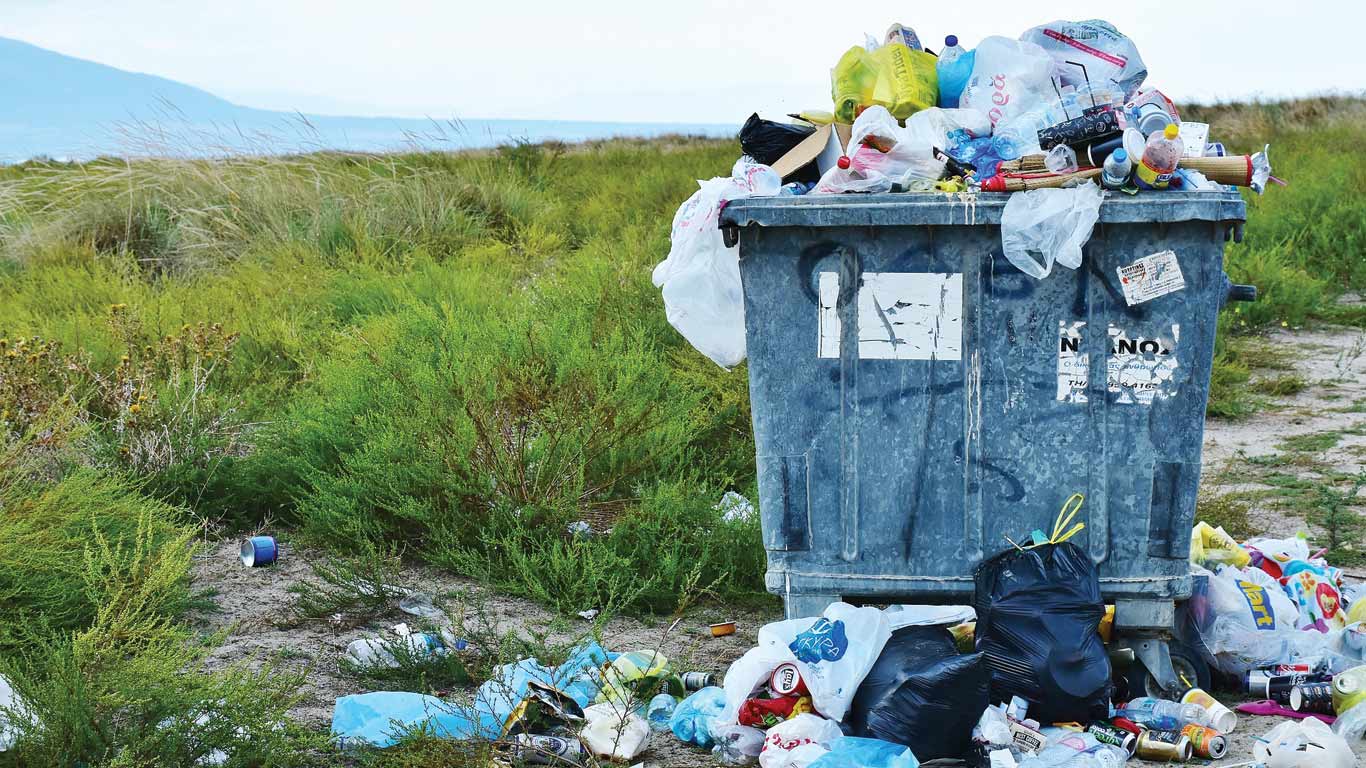
Dear Eartha, This past Earth Day I learned a lot about the plastic pollution problem our planet is facing, and I am curious about how plastic recycling can help make a difference. Does recycling really help?
Thank you for your question. And, yes you are correct that plastic pollution is indeed a serious problem that threatens the survival of the planet in many ways. From poisoning the oceans and their inhabitants to congesting waste streams and landfills, plastic pollution is one of the most detrimental environmental problems that we face today. We have all contributed to this problem – mostly unknowingly – but we can all work to reduce and ultimately end plastic pollution.
Why is plastic such a pesky pollutant? Well, it takes up to 1,000 years to degrade in a landfill. And we humans throw away enough plastic globally to circle the Earth four times. Unfortunately, out of the 33.6 million tons, we Americans discard each year, only 6.5 percent of the plastic we throw away is recycled, which means the rest of it ends up in the environment, where it can wreak havoc on living creatures. There are now five areas in the world’s oceans where plastic debris accumulates – the largest is twice the size of Texas. These water-borne plastics kill as many as 100,000 sea creatures a year. We can do better.
We all have a role to play in reducing plastic consumption and pollution. And while recycling is part of the solution, it isn’t the most impactful action you can take. Reducing your overall plastic use is. Of course, this is easier said than done as plastics are a pervasive part of our lives and ultimately provide a lot of conveniences. To help bust our plastic addiction, the Earth Day Network has come up with a handy-dandy Plastic Pollution Footprint Calculator to educate users about plastic consumption and encourage behavior change. For instance, the next time you’re at a bar or restaurant, try to remember to ask for a drink without a straw.
Sometimes an alternative to plastic isn’t readily available. In these situations, your best option is to make sure that you recycle all plastics that are accepted in your community. If you use the county drop-off centers, that means plastic bottles with the numbers 1 or 2 stamped on the bottom or side. If you have access to single-stream recycling, you can recycle plastic containers numbers 1 – 7. While far from the final solution to the plastic pollution problem, recycling is a very important part of it.
All of our recycled plastic can be repurposed into many new things: new bottles and containers, picnic tables, playground equipment, t-shirts, jeans, sweaters, carpeting, yarn, insulation, and much more. In fact, did you know it only takes five recycled two-liter bottles to make enough fiberfill for one ski jacket, 25 plastic bottles to make one fleece jacket, and 114 bottles to make enough fiberfill for a sleeping bag? This should resonate with all of our Summit County folks, right?
How about our roads? With the severe weather that pounds our highways and byways day-in and day-out, our roads take a serious beating. Asphalt has long reigned as the road construction material of choice because it is reasonably quick, easy, and cheap to install. But, it’s also an environmental menace: its production contributes to over 96 million tons of CO2 released into our atmosphere each year. But good news! There is a new technology in which recycled plastic materials can now be used to pave roads that are “greener” than normal asphalt-based roads. Replacing conventional blacktops with “plastic roads” not only reduces those carbon emissions, but also creates roads that withstand temperature variations of -40 to 176 degrees Fahrenheit, are 10 times longer-lasting, and are 60 percent stronger than their traditional counterparts. Not to mention that this material makes use of our waste, reducing the amount of plastic in our landfills, landscapes, and waterways.
As you can see, Mary, every piece of plastic that you recycle can make a difference in some form or another. Whether it be the insulation for your next ski jacket, a brand new eco-friendly road, or just saving electricity, oil, and energy, both reducing your plastic consumption and recycling what you have are great starts to combating plastic pollution.


